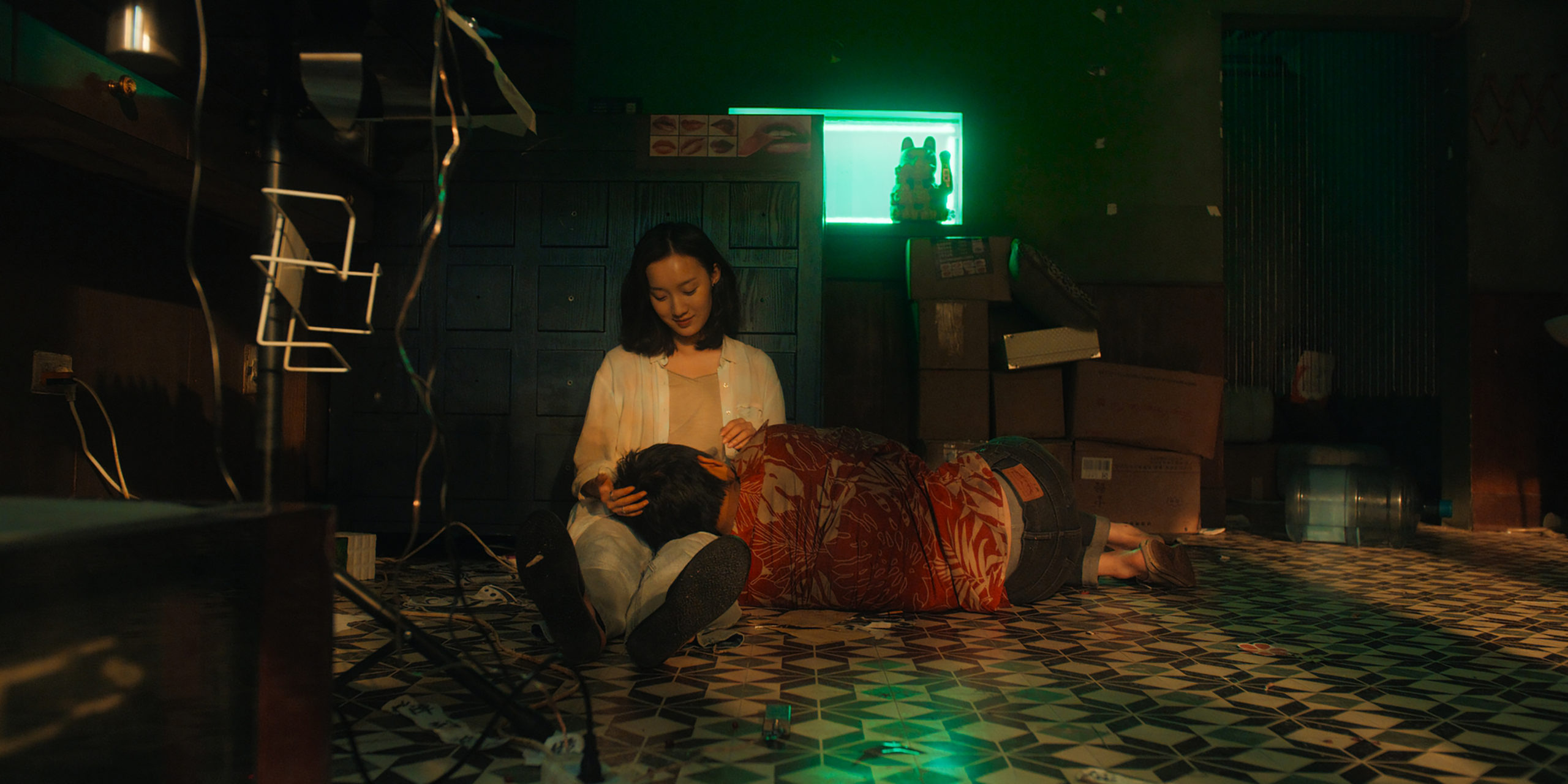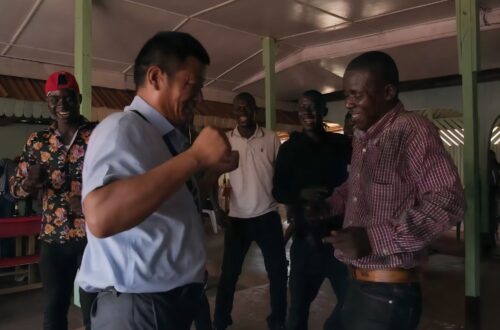Gaey Wa’r (Streetwise): A Chinese arthouse film from Cannes
Five years in the making, Manchu director Nà Jiāzuǒ’s 那嘉佐 feature debut embraces style over substance.

Gaey Wa’r — known also by its English title Streetwise — is a gritty drama of youthful angst. Premiered at last year’s Cannes Film Festival in the Un Certain Regard section, which focuses on the discovery of original films with high aesthetic quality, the low-key crime drama is an example of an “arthouse genre” film whose artistry prevails over its narrative.
The story follows Dongzi (李九霄 Lǐ Jiǔxiāo), a 21-year-old who works as a henchman for a local debt collector, Xijun (余皑磊 Yú Áilěi), to pay for the medical treatment of his father (姚橹 Yáo Lǔ), who the film implies used to be a local boss. Off work, Dongzi finds comfort in the presence of Jiu’er (黄米依 Huáng Mǐyī), the owner of a local tattoo parlor, but their relationship is in limbo because she’s also the former spouse of Mr. Four (沙宝亮 Shā Bǎoliàng), a criminal boss who remains dangerously obsessed with her. To further complicate matters, Xijun is skimming off Mr. Four while Dongzi and Jiu’er plan an escape from their little town. Alas, you know what they say about the best-laid plans.
Location, location, location. If those are the three things that matter the most in real estate, so it is in Gaey Wa’r. Set in 2004 in the small town of Zhenwu in Sichuan province but shot in Chongqing, the setting almost becomes a character in its own right. The title, Gaey Wa’r — 街娃儿 jiē wár — is in Sichuanese dialect meaning “street kid.” After winning the Grand Jury Prize at the FIRST International Film Festival earlier this month, director Na acknowledged the importance of the city: “I think this honor belongs not only to us,” he said on stage, “but also to every crew member, lighting, stray dog, bug, tree, and every single small but significant life in third- and fourth-tier cities.”
With predominantly nocturnal scenes, art director Wáng Chúnmò’s 王淳墨 vividly realistic design results in striking set pieces that are expertly captured by cinematographer Lí Jiānéng 黎佳能 (whose first name happens to be identical as the Chinese name for the camera brand Canon). Li combines deep focus shots with saturated colors and low-key lighting to film the neon-lit narrow alleys and slopes of the “mountain city,” as well as its lush green hills in the distance, which renders a neo-noir effect. For his brilliantly expressive camerawork, Li received the Best Artistic Originality award at FIRST.
For all its admirable artistry and corresponding awards, however, Gaey Wa’r’s plot leaves something to be desired. Set against the background of China’s mass rural-urban migration around the turn of the century, the story portrays those who are unable to leave their small towns due to the various strings attached. Actress Huang Miyi excels as Jiu’er, who exudes cool tenderness as a contrast to the violence of Dongzi and the other male characters, but her role as the boss’s girlfriend is cliched.
Centering the story around youthful frustration and disillusionment — a theme that many first-time Chinese indie directors engage with — results in characters who struggle to go beyond archetypes. The film reminds one of the narrative setting of Jiǎ Zhāngkē’s 贾樟柯 Unknown Pleasures (2002) — in which a teenage protagonist also takes a fancy to the local boss’s girlfriend — and the neo-noir atmosphere of Diāo Yìnán’s 刁亦男 The Wild Goose Lake. The resulting effect, however, skews more to genre mainstream than to arthouse stylistics.







